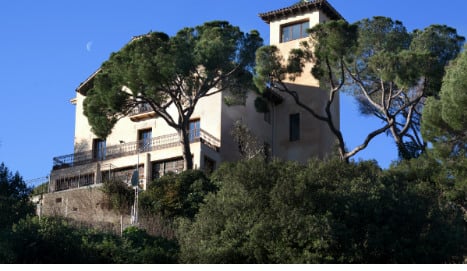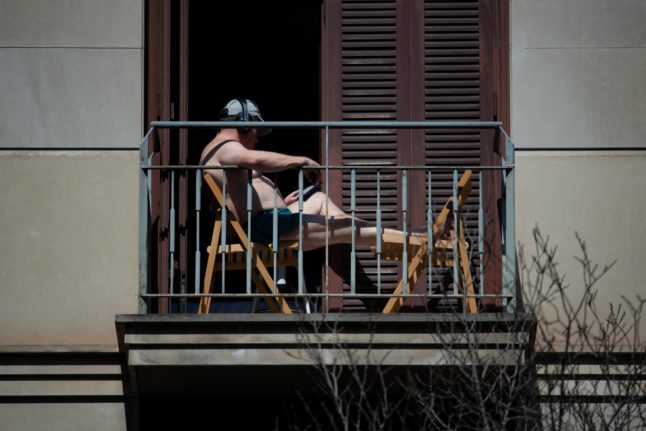The Villa Paula was designed by renowned architect Jerome Granell I Manresa in 1912 and offers original features, including a tower room with 360-degree views, that it is no wonder it was special for Catalan soprano Montserrat Caballe, 81.
In Pics: The Local´s Spanish property of the week.
"She favoured the upper balcony where she would sing to 'her beloved Barcelona'," current owner Tony Hayes told The Local. "She was a friend of the previous owner, a Cuban merchant, and he said it helped her when she was feeling sad.
"I like to think of her singing 'Barcelona'," he said, referring to the duet she sang with Freddie Mercury that became the official anthem of the 1992 Olympics, held in Barcelona.
The Modernista property, which is one of the largest privately owned plots in Barcelona with 41,000 m² across landscaped terraced gardens, has a place in a darker period of history.
It was in cellars that have now been restored into a bodega that Lluís Companys i Jover, the leader of the ERC and president of the Catalan parliament at the outbreak of the Spanish Civil War, hid out before fleeing into exile in France.
When the bodega was cleared during renovations two wooden stools were found, one covered in wax from the candles by which the communist leader would read.
"We were told by the previous owner and from some historians that Lluis Companys did indeed hide in Villa Paula before going to Paris to visit his sick son," said Hayes.
"It is believed that he hid in a cistern under Villa Paula when the troops would search house to house; the cistern has since been converted into a bodega."
The former president is buried in nearby Montjuic after being shot by firing squad when the Nazis caught him and returned him to the Franco regime.
The house, which now has an infinity pool with views extending across the hills over the city and to the Mediterranean beyond, boasts eight bedrooms, a spa and a gym with original features such as stained glass windows and mosaic tile flooring, preserved and carefully restored.
The property is being offered by Lucas Fox. Price on request.



 Please whitelist us to continue reading.
Please whitelist us to continue reading.
Member comments